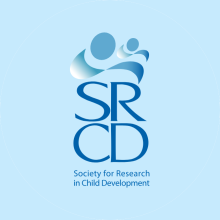January 2011 Spotlight on the SRCD Policy Fellow: Sarah D. Lynne-Landsman, Ph.D.
2010-2011 Federal Executive Branch Policy Fellow
As an early career researcher, one of my foremost career goals has been to conduct applied research that ultimately can improve public health by disrupting negative trajectories and promoting positive adjustment during childhood and adolescence. The Society for Research in Child Development (SRCD) policy fellowship was particularly appealing to me because of the unique opportunity to learn more about how science is used to inform policy decisions given the applied nature of my research. I was delighted to find that this fellowship allowed me to develop skills not only for a future academic research career conducting policy relevant science but also health science administration at the nation’s medical research agency. So far, my experience has met and exceeded my expectations.
I have been working at the National Institute on Drug Abuse (NIDA), National Institutes of Health (NIH), within the Department of Health and Human Services (DHHS) since September of 2010. To facilitate scientific collaborations across NIDA, I have an appointment across offices and divisions which focus on aspects of child and adolescent drug abuse research, dissemination and policy. I divide my time at NIDA between the Office of Science Policy & Communications (OSPC); the Prevention Research Branch (PRB) of the Division of Epidemiology, Services, & Prevention Research (DESPR); and the Division of Clinical Neuroscience & Behavioral Research (DCNBR). I also facilitate the mission of the Child and Adolescent Working Group (CAWG) which serves as a point of integration across the divisions of NIDA regarding research that impacts children, adolescents and their families.
My cross-division appointment through NIDA has many benefits. I came into this appointment with a strong background in adolescent development and prevention. I have now expanded my expertise to include an understanding of clinical neuroscience, treatment, and translational science. Part of my responsibilities with OSPC is working on the NIDA/SAMSHA Blending Initiative which is a unique cross-federal collaboration between NIDA and the Substance Abuse & Mental Health Services Administration (SAMHSA), DHHS, to improve the translation of effective substance abuse treatments from the research community to practitioners. The delay between when strong evidence of a treatment’s effectiveness is established and implementation of new evidence-based practices by practitioners in their institutions is unacceptably long. I have been working with key NIDA staff, SAMHSA Addiction Technology Transfer Center directors, and private contractors to help develop products that can reduce this delay (e.g., computer and web-based software resources for practitioners). Working on the NIDA/SAMSHA Blending Initiative has given me a new appreciation for the prior successes, as well as the difficulties in translating science to practice.
I am also currently in the process of organizing a one-day workshop that will include experts in clinical neuroscience, experts in adolescent drug abuse treatment, and experts in behavioral economics. The goal of this meeting will be to facilitate the integration of neuroscience with the understanding of how adolescents weigh incentives and make decisions, ultimately informing developmentally appropriate adolescent drug abuse treatment. I am very excited about the potential of this workshop to create new interdisciplinary collaborations that will move the field forward.
My responsibilities writing for public audiences have been some of my favorite and most educational experiences during my fellowship. I am in the process of writing a review of effective early childhood interventions for the prevention of substance use meant to inform parents, practitioners, and policy-makers. I have also had the opportunity to write responses to congressional inquiries regarding NIDA’s research portfolio. These tasks have challenged me to improve my ability to convey large amounts of complex scientific information in brief, interesting, non-technical language for diverse audiences. I have also come to the realization that one can always improve upon their writing ability and communication skills.
In addition to the “on-the-job” policy skills training and developmental learning we get at our placements, we benefit from amazing professional development events that SRCD provides for policy fellows. These professional development events have been just as important to my training experience as an SRCD policy fellow as my daily work at NIDA. While I have decided to pursue a return to academia this fall, my experiences as an SRCD policy fellow have given me a unique and valuable perspective on the interplay between science and policy that will enhance my future research career. My perspective on science will forever be changed and forever informed by policy.
1 https://www.drugabuse.gov/
2 http://www.drugabuse.gov/about/organization/icaw/icaw.html
3 http://drugabuse.gov/blending/
